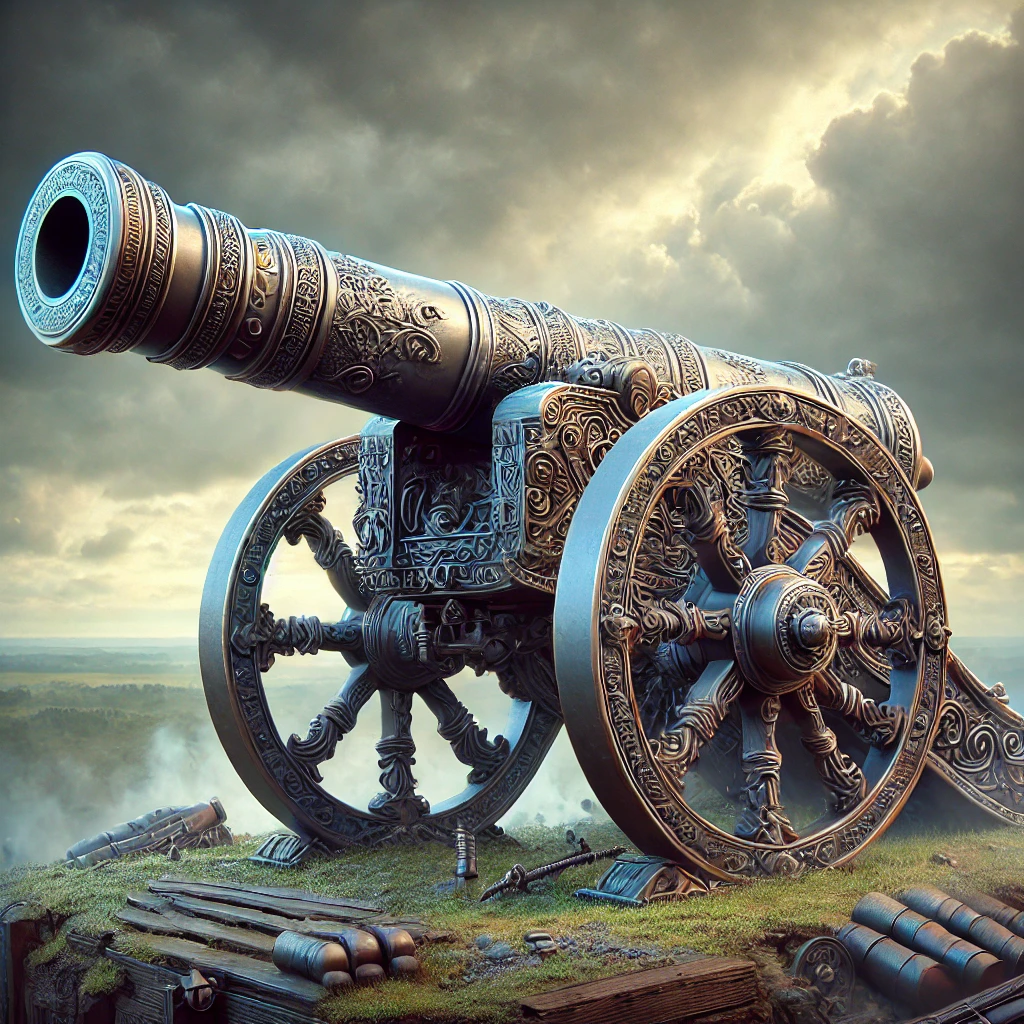Why Arsenal FC Are Called ‘The Gunners’: The Fascinating History Behind the Name”
Arsenal Football Club is one of the most iconic names in football, a club with a rich heritage that spans over a century. But beyond the trophies, legendary players, and unforgettable matches, there’s a nickname that truly sets Arsenal apart: The Gunners. This name, steeped in history, isn’t just a catchy moniker—it’s a nod to the club’s unique origins and enduring identity.
Why Arsenal FC Are Called ‘The Gunners’. From humble beginnings in a South London munitions factory to becoming a global football powerhouse, Arsenal’s nickname symbolizes strength, resilience, and pride. Today, we’ll explore the story behind “The Gunners,” tracing its roots and uncovering what makes this name so much more than just a title for fans around the world.
The Historical Context
Born in the Heart of Woolwich: Arsenal’s Munitions Factory Roots

To understand why Arsenal FC are called The Gunners, we need to travel back to 1886, when the club was first established in Woolwich, South London. Arsenal’s origins are deeply intertwined with the industrial landscape of the time. The club was founded by a group of workers from the Royal Arsenal, a munitions factory renowned for manufacturing artillery and ammunition for the British Army.
This connection to the munitions industry wasn’t just incidental; it shaped the club’s identity from day one. The name “Arsenal” itself was chosen as a direct homage to the factory where these workers toiled, and it perfectly captured the spirit of the team they envisioned—strong, disciplined, and formidable.
The Woolwich Arsenal wasn’t just a workplace; it was a symbol of innovation and power in Victorian Britain. For the club’s founders, it provided an inspiring foundation to build a football team that would embody these qualities on the pitch. This unique origin set Arsenal apart from other clubs formed in the same era, many of which were linked to churches or schools rather than industrial hubs.
From these beginnings, the club’s identity as The Gunners began to take shape, laying the groundwork for a legacy that would endure for generations. The link to artillery would later be immortalized in Arsenal’s iconic cannon emblem, a symbol that has remained central to the club’s heritage even as it moved to new territories and greater heights in football history.
Why ‘The Gunners’?
From Woolwich to North London: Keeping the Cannon Close
The nickname The Gunners is more than just a reflection of Arsenal’s origins—it’s a symbol of the club’s identity that has stood the test of time. When the club was formed by munitions workers at the Royal Arsenal, their connection to artillery became a defining characteristic. This was first expressed through the club’s early emblem: a simple cannon.
The cannon, a representation of the artillery manufactured at the Royal Arsenal, quickly became synonymous with the club’s identity. Over the years, it has appeared on the club’s badges in various forms, often pointing proudly to the right, symbolizing forward momentum and strength. Even as the club’s fortunes and locations changed, this military iconography remained central to Arsenal’s branding and identity.
When Arsenal relocated from Woolwich to North London in 1913, some might have expected the club to shed its ties to its munitions roots. Instead, Arsenal doubled down on its identity, keeping the cannon in its crest and continuing to embrace the nickname The Gunners. This decision not only honored the club’s founders but also helped to solidify its unique place in football history.
The nickname has since transcended its industrial origins. For Arsenal fans, The Gunners represents a fighting spirit, resilience, and a commitment to excellence both on and off the pitch. It’s a badge of honor that unites supporters across the globe and links the modern-day club to its storied past. The enduring presence of the cannon in Arsenal’s crest is a constant reminder of where it all began—and a testament to the power of tradition in shaping a club’s identity.
Evolution of the Club’s Nickname
More Than a Nickname: What ‘The Gunners’ Means to Arsenal Fans
Over the years, the nickname The Gunners has evolved beyond its industrial roots to become a symbol of pride and identity for Arsenal Football Club and its supporters. What began as a nod to the club’s origin in the Royal Arsenal munitions factory has grown into a rallying cry that unites fans across the globe.

The cannon emblem, central to Arsenal’s branding, has seen many transformations. From the early 20th century, when it first adorned the club’s kit, to the sleek modern designs of today, the cannon has remained a constant reminder of Arsenal’s heritage. The nickname itself gained further prominence during the post-war period, as fans affectionately began calling players and themselves Gunners.
For the players, being part of The Gunners signifies more than wearing the famous red and white shirt. It represents the club’s storied history of resilience and success, from the invincible 2003-04 season to its legendary Highbury days. On the terraces and in stadiums around the world, Arsenal fans proudly identify as Gooners, a playful derivative of Gunners that underscores their loyalty to the club.
This evolution has also extended into popular culture. Songs, chants, and merchandise often incorporate The Gunners identity, with the phrase becoming a shorthand for Arsenal’s determination and fighting spirit. Whether it’s a thunderous chant of “Come on you Gunners!” at the Emirates or the phrase emblazoned on scarves, jerseys, and banners, the nickname reflects the collective passion and pride of the Arsenal community.
From a factory-floor football team to a global powerhouse, The Gunners encapsulates the journey of Arsenal FC. It’s more than a nickname; it’s a symbol of unity, strength, and unwavering support for a club that continues to inspire its fans and forge new chapters in its illustrious history.
Legacy and Modern Relevance
Why ‘The Gunners’ Will Always Be Arsenal’s Heartbeat
Today, The Gunners is more than a relic of Arsenal’s past—it’s a living, breathing part of the club’s identity that continues to inspire players and fans alike. While the club has undergone significant changes over the decades—relocating from Woolwich to North London, building the state-of-the-art Emirates Stadium, and expanding its global fanbase—the nickname remains a steadfast link to its roots.
The cannon, prominently featured in Arsenal’s crest, is a powerful emblem that connects generations of fans. It serves as a reminder of the club’s origins in the Royal Arsenal munitions factory while symbolizing the strength, precision, and resilience that define Arsenal’s footballing philosophy. Whether etched on the iconic red and white kit or incorporated into branding campaigns, the cannon ensures that The Gunners legacy remains front and center.
For fans, the nickname encapsulates the club’s enduring ethos. Supporting The Gunners is about more than celebrating goals and victories; it’s about embodying the spirit of a club that has weathered challenges and consistently risen to the occasion. This identity resonates deeply in the chants echoing through the Emirates Stadium, the pride displayed in Arsenal’s global fan communities, and the values the club upholds both on and off the pitch.
In the modern era, The Gunners has also become a rallying cry in Arsenal’s efforts to stay competitive in the world of football. From youth academy graduates embodying the club’s future to new signings embracing the history that comes with the badge, the nickname continues to serve as a source of motivation and unity.
As Arsenal looks to the future, the name The Gunners ensures that the club never forgets where it came from. It’s a legacy rooted in history but alive with modern relevance—a name that binds its past, present, and future together in the hearts of millions.
Arsenal FC’s nickname, The Gunners, is far more than just a catchy title—it’s a powerful reminder of the club’s unique origins and enduring spirit. From the factory floors of the Royal Arsenal in Woolwich to the global stage of the Emirates Stadium, the name symbolizes strength, resilience, and a legacy that spans generations.
The journey from a small group of munitions workers to one of the world’s most iconic football clubs is a testament to the power of tradition and identity. The cannon in Arsenal’s crest serves as a constant connection to its history, while the nickname The Gunners unites players and fans in their shared passion and pride.
Whether you’re a lifelong supporter or a new fan discovering Arsenal’s rich history, The Gunners represents more than football—it’s a way of life. So, next time you cheer for Arsenal, remember the legacy behind the name and the generations of fans who proudly carry the banner of The Gunners.
